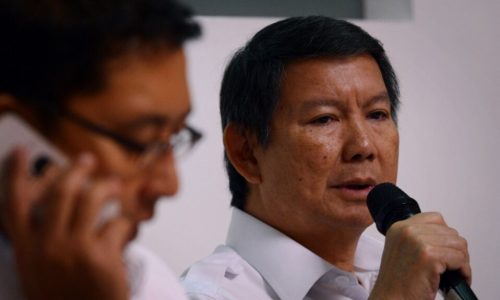The Indonesian Central Bank (BI) announces a strategic step to stabilize the rupiah exchange rate next year, primarily by purchasing Government Bonds (SBN) from the secondary market.
Governor of the Indonesian Central Bank, Perry Warjiyo, said that this measure had been discussed in depth with Finance Minister Sri Mulyani Indrawati.
“We have met bilaterally, in principle we have also agreed on the plan to issue SBN and the plan to purchase SBN from the secondary market as part of the monetary operations plan,” Perry told a media conference after the BI Board of Governors meeting, on Wednesday, December 18, 2024.
According to Perry, the value of BI’s purchase of SBN from the secondary market is estimated to reach Rp150 trillion (US$9.2 billion), or even higher. “The amount is even higher than the amount due for burden sharing,” he cited.
This plan is part of the monetary operation’s expansion policy based on the development of primary money and national liquidity needs.
To perfect the implementation mechanism, BI Senior Deputy Governor, Destry Damayanti, said she and echelon I members of the Ministry of Finance are currently discussing technical details of the plan. Results of the discussion will be reported to the Governor of BI and the Minister of Finance for final approval.
Market intervention
In addition to purchasing SBN, Perry said that BI will intensify stabilization through intervention in the spot market and Domestic Non-Deliverable Forward (DNDF). “We also continue to increase the amount,” Perry emphasized.
Not only that, BI also plans to issue Bank Indonesia Rupiah Securities (SRBI) by offering attractive yields. This step is intended to increase the attractiveness of domestic assets amid external pressures.
Perry cited that the election of Donald Trump as President of the United States has triggered global pressure and caused capital outflows from Indonesia. Throughout the fourth quarter of 2024, foreign capital outflows were recorded at US$ 2.4 billion, with stocks being the largest contributor at US$ 1.9 billion.
BI’s strategic steps are expected to reduce financial market turmoil and maintain Indonesia’s macroeconomic stability amid dynamic global challenges.









